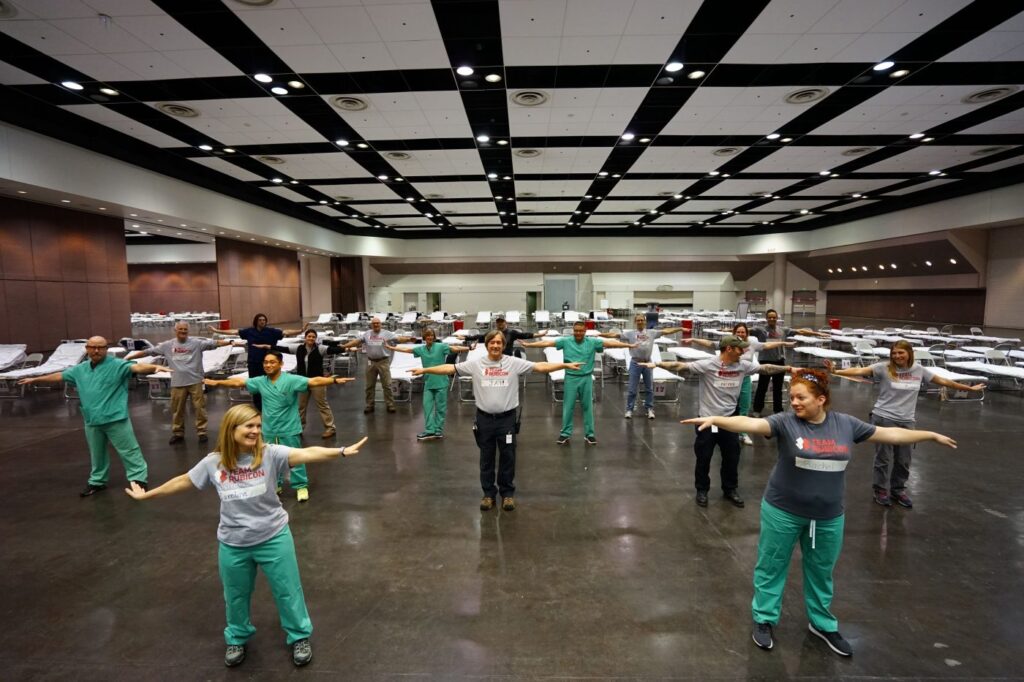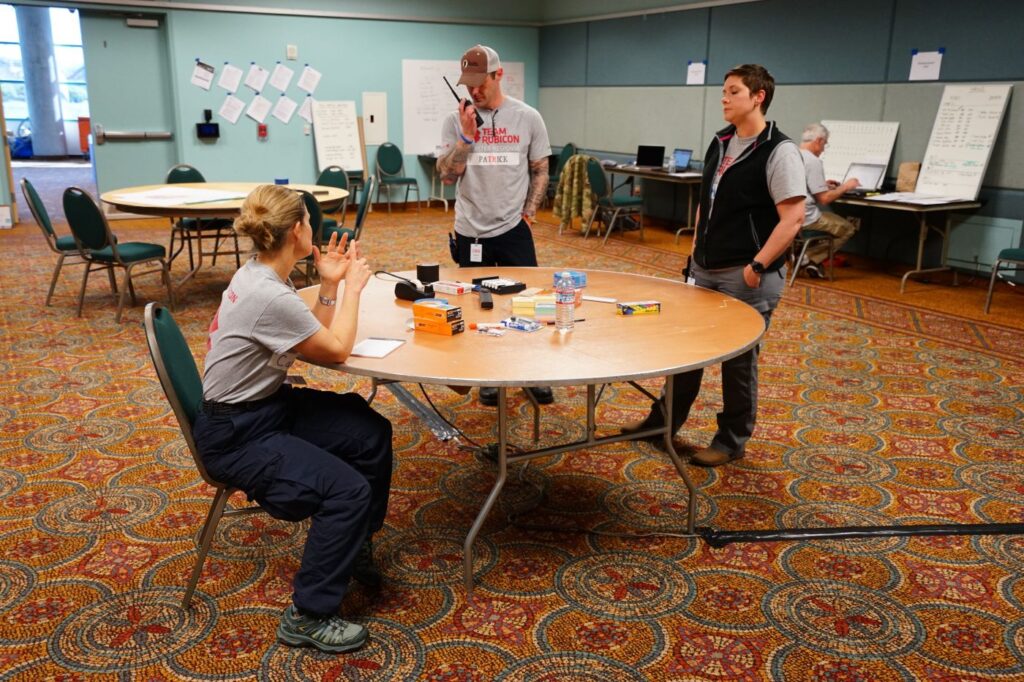Rows of medical cots string out through the Santa Clara Convention Center, the pillows back to back in clusters of fives; a folding chair standing sentinel beside each. Normally this is the site of tech conventions and educator conferences. Now, men and women recovering from the coronavirus are filtering in and choosing their beds. As of today, the Santa Clara Convention Center has become the place where low acuity patients—people whose COVID-19 symptoms are declining; people no longer in need of the most intensive coronavirus care—can continue their recovery before returning home. For the Santa Clara hospital system, it’s a critical lifeline, a resource that allows them to focus attention on—and free up beds for—people in need of the most critical care.

Social distancing in the Santa Clara FMS.
Designed as a decompression station for Santa Clara county’s 10 hospitals and medical centers, the makeshift medical center is being run by Team Rubicon in conjunction with the U.S. Department of Health and Human Services. Staffing the medical center 24-hours-a-day, in shifts, are medical Greyshirts—a doctor, five nurses, two paramedics, and five EMTs—all volunteers here to assist patients as needed. They perform basic wellness checks, take temperatures, and also handle other non-COVID-19 related medical care.
If it’s the first field hospital to appear in Santa Clara, it’s also one of the first medical mission in the continental U.S. for Team Rubicon. The organization has provided medical care in Puerto Rico, and it assisted with the Dengue Fever outbreak last fall in the Marshall Islands, but now its medics are serving stateside. It launched a coronavirus testing site in Charlotte, NC earlier this week. Doctors and nurses for all medical missions are coming from beyond California and North Carolina to serve, too.

Medical Greyshirts await patients.
“What really speaks to how serious this crisis is is the fact that out-of-state medical providers are being credentialed by the state,” said Shauna Finley, a nurse from St. Helena and the incident commander for the Team Rubicon operation. That’s especially remarkable for a volunteer organization such as Team Rubicon. Typically, those doctors and nurses would be covered under a larger umbrella organization, be that a multi-state medical group or via a federal organization. “California is really trying to ensure they get these resources to their communities. It’s pretty significant.” For this operation, the county and state credentialed physicians licensed in Michigan, registered nurses from as far away as Alaska and Maryland, EMTs from Texas and Virginia—all volunteers now settling in to serve the recovering coronavirus patients in the Silicon Valley.
While the field medical center opened with just 10 patients, it is set up to handle as many as 250. And, Team Rubicon healthcare providers know they are in it for the long haul: when the current rotation comes to an end in 30 days, another cadre of medical care providers is already being queued up in neighboring states, doctors and nurses and EMTs who will touch down in California and serve recovering patients, until the beds at local hospitals have freed up again, and the pandemic is under control here in the Silicon Valley.



